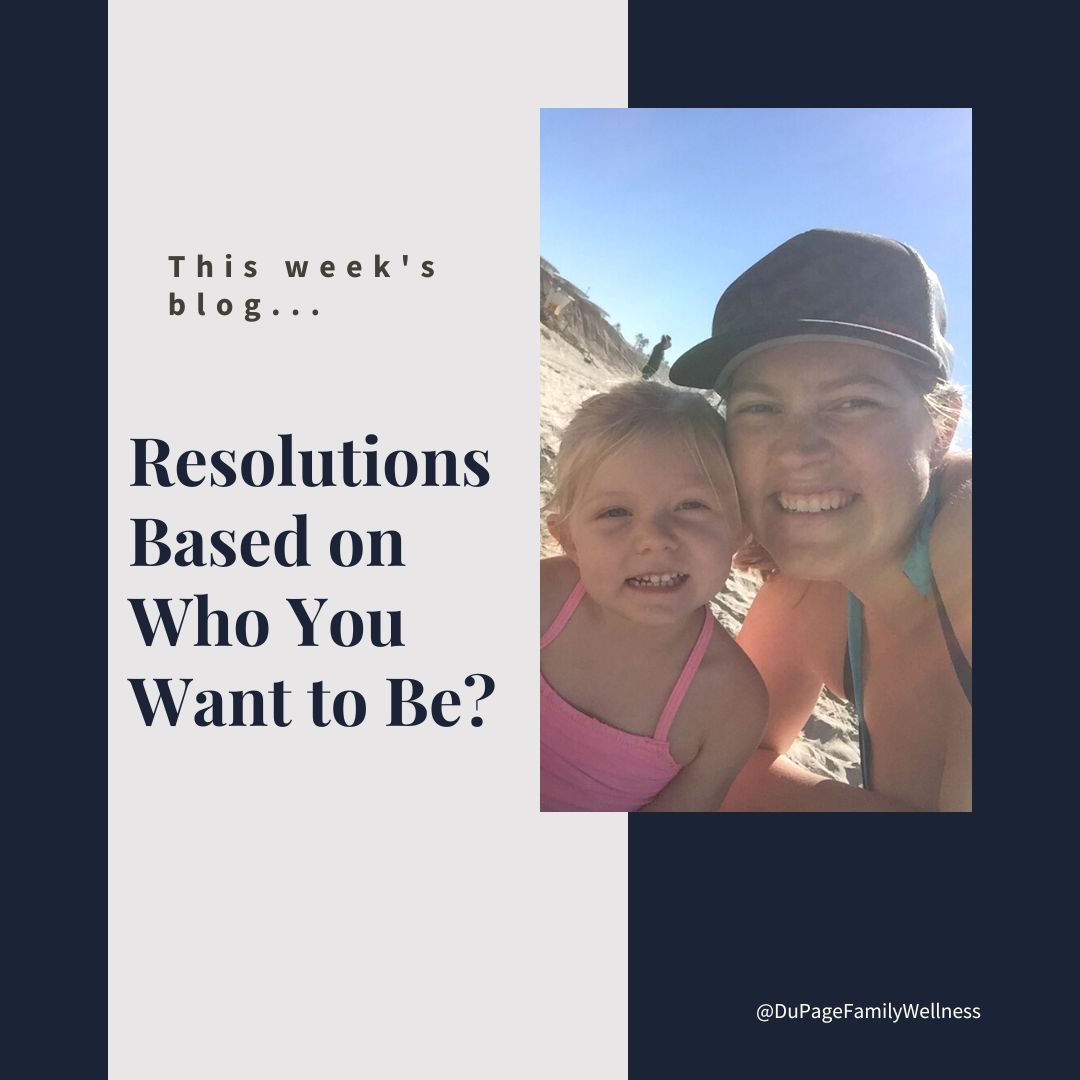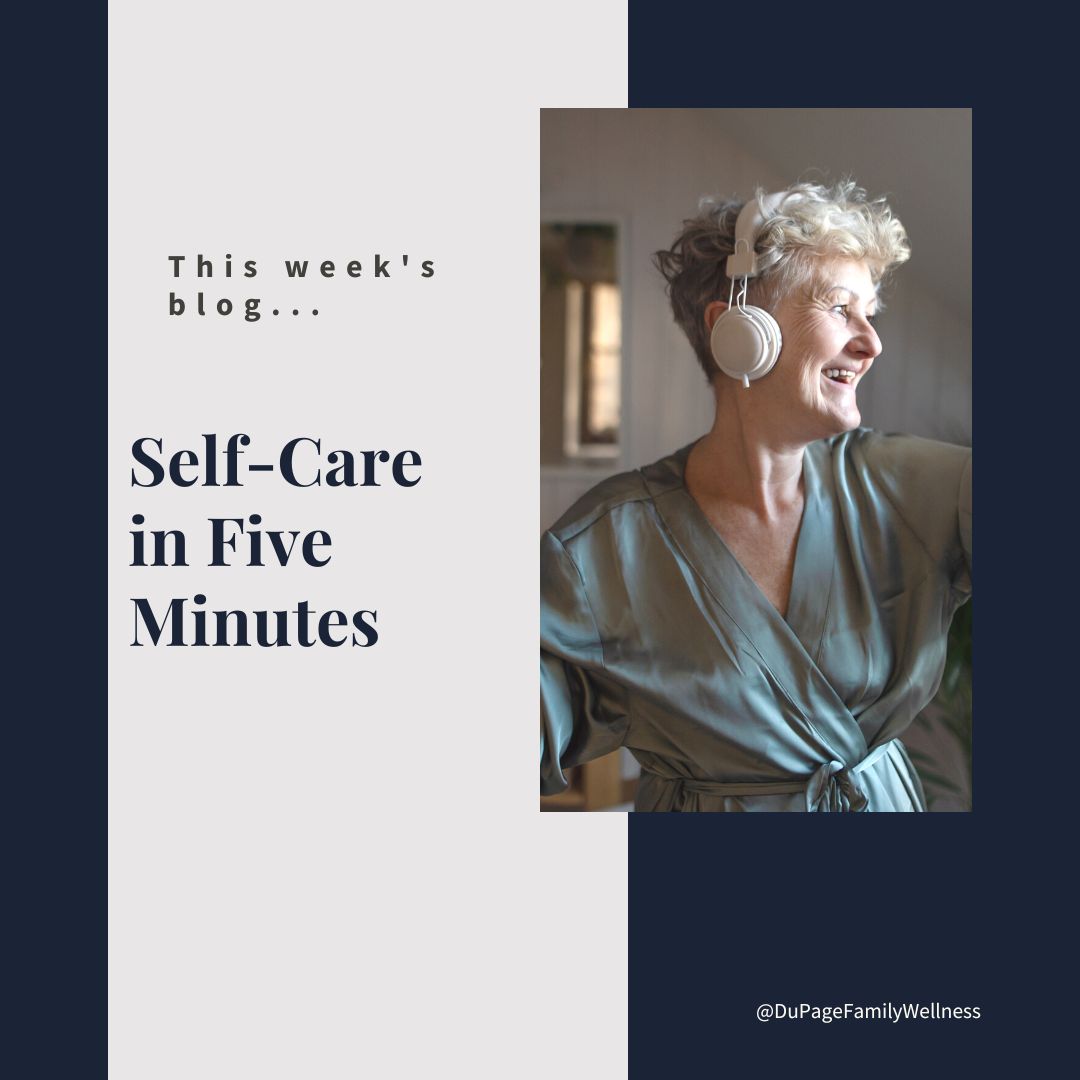
In the process of pursuing your resolutions, don’t forget the basics. You may be focusing on moving more, increasing your protein, or eating more vegetables. These goals are great, but they will not have the results you want without a solid foundation.
Make sure you are getting enough hydration, reducing your stress, and sleeping well. And be sure to keep chiropractic care in your routine, because there are many benefits to regular adjustments even if you are not in pain.
Let’s look at some of the benefits of chiropractic care and why it is especially important this time of year.
What is Chiropractic Care
Traditional Chiropractic care involves adjusting or mobilizing joints in the body. This can be done in the spine, neck, and other joints such as the hips, wrists, and feet. It is done to help correct biomechanical imbalances, alleviate pain, and restore normal body function.
Along with traditional adjustments, I utilize the Active Release Technique (ART). It is a therapy that treats soft tissues such as muscles, ligaments, tendons, fascia, and nerves. Its main purpose is to break up scar tissue, adhesions, trigger points, or “knots”. It can also successfully improve circulation, release entrapped nerves, and improve the flexibility of the muscle and surrounding fascia.
While chiropractic care is highly beneficial for pain relief, there are many other reasons that it is valuable for everybody. The positive impact it has on the immune system might be the most compelling reason to prioritize chiropractic care this time of year.
Regular Chiropractic Care & the Immune System
Since the early 1900s, there has been evidence that regular chiropractic care has a positive effect on the immune system. It is believed that this is because of the link between the nervous system and the immune system.
One of the early studies, done by researchers in Davenport, Iowa, looked at death rates during the Spanish Flu epidemic. The findings were astounding. Out of 93,590 patients treated by traditional medical doctors, 6116 died. Simply put, that is one out of every fifteen patients. However, out of the 1635 patients at the Palmer School of Chiropractic, there was only one death.
A study published in 1987 found those who had regular chiropractic care for five years had 200% greater immune competence than the general population. This study was led by Dr. Pero, Ph.D., chief of cancer prevention research at New York’s Preventive Medicine Institute and professor of medicine at New York University.
When discussing these findings Pero stated, “When applied in a clinical framework, I have never seen a group other than this chiropractic group to experience a 200% increase over the normal patients. This is why it is so dramatically important. We have never seen such an improvement in a group.”
Other Benefits
In addition to the impact on the immune system, researchers are looking at many other factors. Some of the following benefits may surprise you and cause you to think of a loved one who is suffering from one of the ailments.
- Sciatica Pain - a randomized double-blind trial compared active and simulated manipulations at the Sapienza University of Rome. They found that 28% of participants treated by a chiropractor reported being pain-free at the end of the trial. In addition, a significant reduction in the use of painkillers was found, and 55% of patients reported no further sciatica symptoms.
- Migraines - A systematic review of randomized clinical trials found evidence that chiropractic spinal manipulative therapy (CSMT) helped manage the intensity, frequency, and duration of migraines. It was also noted that “over-the-counter medication was reduced from baseline to 4 weeks post-treatment with 55% in the CSMT group."
- Blood Pressure - The authors of a study published in the Journal of Human Hypertension showed that a specific spinal adjustment can significantly reduce blood pressure in those with hypertension who have a misalignment of the Atlas of the spine. The results were seen after one adjustment and lasted up to eight weeks.
Read more ...
 After the holidays many people struggle with the post-holiday blues. It makes perfect sense when you think about it. If you had a good holiday, it is hard to move on from the joy you felt. On the other hand, if it was a difficult holiday there may be some grief to process.
After the holidays many people struggle with the post-holiday blues. It makes perfect sense when you think about it. If you had a good holiday, it is hard to move on from the joy you felt. On the other hand, if it was a difficult holiday there may be some grief to process.
Take a minute to notice how you are feeling after the holidays. Are you struggling with depression? Is there a feeling of emptiness or loneliness? Do you understand where those feelings are coming from?
Knowing these things can help you care for yourself by making a plan for these difficult weeks. If you notice the feelings you can take a proactive approach that may lessen the intensity of these emotions
Let’s take a look at the reasons you might experience the post-holiday blues and what you can do to combat it.
Reasons You May Feel Sad
People may feel sad for a multitude of reasons during and after the holidays. Identifying what impacts you can guide your action plan. Here are some things that may be difficult for you.
- Burnout - the stress of the season can lead to burnout. When you work hard to make the holiday special you can be left feeling depleted of energy and joy.
- Family conflict - the holidays can highlight conflict in a family. Discussing certain topics at the dinner table can be risky and you may feel pressure to be around people you would otherwise avoid.
- Disappointment - there can be a sense of grief if the holidays are less than satisfying. Maybe you worked hard to make it special for others and nobody did anything special for you.
- Loneliness/Grief - being without the people you love can be especially painful during the holidays. If you have lost a loved one the holidays often amplify the grief. Not having close friends or family near you can also leave you feeling alone.
- Dread - going back to the daily grind is rough. You may have taken time off work and now it’s time to go back to the mundane.
- Anticipation - the anticipation of the holidays creates excitement. Without that to look forward to, winter can feel really long.
How to Combat It
Once you identify the underlying cause of your sadness you can figure out ways to ease it. Take these thoughts as a springboard to create an action plan that will work for you.
- Relax - the craziness of the season is over, so take some time to relax. It’s okay to do nothing after doing so much.
- Selfcare - find something that brings you life. Think about what you want to do, not what you think you should do. There is not only one right way to do self-care.
- Connection - you may have enjoyed the connections you experienced through the holidays. Make a point to continue those connections. Schedule time with friends, call loved ones, text or video call someone out of town.
- Anticipation - what can you look forward to that will bring you joy? If there isn’t already something you are anticipating, create one and put it on the schedule.
- Common experience - knowing that you aren’t alone in your difficult experience can be strangely comforting. Remember that this is a very common experience, and you are not alone in it.
- Dealing with difficult emotions - unpleasant emotions don’t disappear when we ignore them. Learning how to work through difficult emotions in a healthy way is the best way to open yourself up to positive emotions.
- Gratitude practice - feeling gratitude floods our brain with the feel-good hormone dopamine. (Check out the blog Holding on to Gratitude)
Consider Seasonal Affective Disorder (SAD)
Severe cases of “the winter blues” may be seasonal affective disorder (SAD). If you have it you are not alone; an estimated 10 million Americans have been diagnosed with it.
A thorough evaluation for SAD generally includes a physical exam, psychological evaluation, and lab work. It can be tricky to get this diagnosis because the symptoms overlap those of other mental health issues.
The good news is that treatment is available. It may include light therapy, medication, and a good therapist. Please don’t suffer alone. Talk to me at your next appointment and ask for some resources.
Let me know if you try any of these ideas or if you have some suggestions of your own. I’d love to hear them.
Dr. Jamie
 It’s resolution time, and many people have high expectations of themselves. Self-improvement is great, but are you able to be kind to yourself in the process? It’s time for a quick check before we get too far into the year.
It’s resolution time, and many people have high expectations of themselves. Self-improvement is great, but are you able to be kind to yourself in the process? It’s time for a quick check before we get too far into the year.
Is your goal making you push yourself too hard? What are you telling yourself in the process? Do you have a balance between challenging yourself and accepting yourself where you are today?
Let’s look at how we treat ourselves during this time of New Year's resolutions and explore how being kind to yourself may help you achieve your goals.
Pushing Yourself
Many people have the habit of pushing themselves too much. They have high goals and want to achieve them quickly. To do so, they don’t give themselves the rest and recovery time needed.
Success is often dependent on long-term change. Accepting your limits will allow you to achieve your goals with more peace. This can help you persevere so you will have lasting success. And think about it, our goals are made to bring us more joy. What’s the point of letting them rob us of joy in the process?
Speaking to Yourself
We don’t tend to be very kind to ourselves with our words. Ask yourself honestly what you say to motivate yourself. Is it encouraging or harsh? What about when you disappoint yourself? Speaking to ourselves kindly makes a huge difference in our experience.
Positive feedback is more effective with children; why should it be any different for us? Researcher Ayelet Fishbach explains, “Several motivational theories attest that positive feedback is more effective for motivating goal pursuit than negative feedback because it increases outcome expectancy of the goal… (and) increases people’s confidence.”
Accepting Yourself
It can be tricky to find the balance between working towards change and accepting ourselves. Our identity tends to get caught up in whether we are achieving our goals. Self-acceptance provides a clear sense of one's abilities and achievements, while also accepting one's limitations.
Coming to our goals through the lens of self-acceptance is important for both our mental and physical health. Research has found a correlation between self-acceptance and mood. Another study found that self-acceptance decreased mortality risk by 19% and added three years of life, even when other factors were accounted for.
Aren't most resolutions designed to give you a more fulfilling and longer life? Of course, they are, otherwise, they wouldn’t be worth pursuing. Don’t wait to accept yourself until you meet a certain ideal. You are worth loving as you are without any exceptions. For more on self-acceptance, check out this article from Better Health.
Think about the people in your life who inspire you the most. Chances are they are kind and accept you for who you are. Most likely, they encourage you instead of tearing you down. So, let me ask you, are you that kind of friend to yourself?
Dr. Jamie
 As we go into the new year, thirty percent of people make resolutions in hopes of changing for the better. Even those who don’t commit to specific change often find themselves reflecting on their life and clarifying their values.
As we go into the new year, thirty percent of people make resolutions in hopes of changing for the better. Even those who don’t commit to specific change often find themselves reflecting on their life and clarifying their values.
I want to introduce you to a concept that might make the process of change a little easier. It involves some soul-searching to find out who you want to be. Knowing this can help you see your next steps and motivate you in the process.
Let’s look at how to do that and then turn our attention to some tips for making traditional resolutions better.
Clarify Who You Want to Be
Before deciding on outward action take some time to think about who you want to be. Do this before you decide on specific resolutions or begin to make an action plan.
Do you want to be a…
- great parent
- successful entrepreneur
- good friend
- healthy vibrant person
- lighthearted individual
What do you see when you think about that person?
- what do they look like
- what are their facial expressions
- how do they perceive themself
- how do those close to them perceive them
What would the future you do if they were who you want them to be?
- how do they act
- how do they handle their finances
- how do they spend their time
- what do they eat
- what is their interaction like with their family
- do they take risks
- do they shy away from challenges
How Knowing This Helps
Finding out who you want to be will clarify “your why.” Knowing why you want to do something is as important as how you want to achieve it. Let’s look at some typical resolutions, breaking down what someone’s “why” might be. They may want to...
- eat healthy to feel more energized to pursue their career and become a successful businessperson
- save money to be able to travel and become an adventurous fun person when they retire
- reduce stress to be more present with their kids and be a great parent
- exercise more to set themselves up to stay active in their older years continuing to be a healthy vibrant person
How to Set Resolutions
Our lives five years from now will be a result of the culmination of tiny habits formed along the way. If you want to be a person in five years, you need to start acting like that person today.
If you are a resolution person, it’s time to make an action plan that will set you up to reach your goal. When we achieve a goal it creates a desire to keep going and often challenges us to make other positive changes.
So, when you set your goals…
- Be realistic - Look at your capacity (schedule, commitments, energy level, physical ability, etc.). As much as we hate to admit it, we are finite beings with limited capacity. Saying “yes” to one thing will mean saying “no” to something else. Make sure that your goal is worth saying “yes” to, and figure out what you will say “no” to in exchange.
- Be specific - John Norcross of the University of Scranton says, “if you can't measure it, it's not a very good resolution because vague goals beget vague resolutions." So, rather than deciding to "exercise more," you might want to say that you will take a walk three times a week during your lunch break.
Read more ...
 It’s twelve days until Christmas, so you probably don’t have a lot of time for self-care. You might not even have enough time to read this article. So, I’ll make this short for you!
It’s twelve days until Christmas, so you probably don’t have a lot of time for self-care. You might not even have enough time to read this article. So, I’ll make this short for you!
Let’s look at some things you can do to take care of yourself in 5-minutes or less.
- Put on a cozy sweater or sweatshirt
- Open the window for a cool breeze
- Massage or stroke your face
- Do some jumping jacks
- Meditate
- Smile (extra credit if you can make yourself laugh)
- Wrap one gift
- Dance
- Tell yourself or someone else a joke
- Gaze at the stars
- Yoga (hold the child’s pose)
- Take some deep breaths
- Stare at nature
- Declutter your nightstand
- Give yourself a foot massage
- Put on some makeup
- List three positive things about yourself
- Close your eyes letting the sunshine on your face
- Diffuse your favorite scent
- Play with your pet
- Make a list of everything on your mind
- Do a sudoku or crossword puzzle
- Hug a loved one
- Open your blinds
- Be completely still
- Listen to your favorite song
- Apply a face mask
- Sit in your car in silence
- Pick a mantra to focus on
- Step outside or go for a walk
- Sing your favorite song
- Mindfully drink your coffee
- Eat a piece of dark chocolate
- Stretch your body
- Progressively tense and relax your body
- Apply lotion to your body
- Doodle or color
- Look at old pictures
Remember, you deserve to enjoy your holiday. It’s more important to be present with your loved ones than it is to try to make everything perfect. So, please be kind to yourself this holiday season.
Dr. Jamie
 It’s been quite the week for store associates and holiday shoppers across the country. Black Friday and Cyber Monday are the busiest shopping days of the year, but what if the best gifts don’t come in a box?
It’s been quite the week for store associates and holiday shoppers across the country. Black Friday and Cyber Monday are the busiest shopping days of the year, but what if the best gifts don’t come in a box?
In our family, some of the most cherished gifts are things you can’t wrap under the tree. Most of us don’t need more material goods, so giving experiences can be a great way to express your love and make memories that last!
One of my favorite gifts from my parents was a family membership to the Naperville Children's Museum. We used the gift throughout the year and thought of them every time we went.
Let’s look at some ideas for experiences your loved ones may enjoy!
Children
Most children have over seventy toys but only play with about ten of them. That’s why experiences are so great. They will have the memory far longer than they will enjoy a toy. Think about getting them a/an…
- membership to the Zoo (Brookfield Zoo and Cosley Zoo are both great)
- gift card to the movie theater (with money for popcorn of course)
- membership to the DuPage Children's Museum
- kid's manicure/pedicure
- ride on the Metra (into the city or to Toot Toot’s restaurant in Glen Ellyn)
- horse riding lesson
- outing to a sporting event
- pass to Fox Bowl
- ticket to a children’s show
- series of swim lessons
Teenagers
Teens have outgrown most toys, but money feels so impersonal. A great solution is to give them an experience they would love! Perhaps they would like a/an…
- gift card to the movie theater (with money for snacks)
- manicure/pedicure
- ticket to a show at a local theater
- outing to a sporting event
- Spotify gift card
- craft class (pottery, macramé, etc.)
- horseback riding lesson
- music class
- escape room experience
Adults
Many of us have more things than we know what to do with. Organizing all of them can be overwhelming. That’s why experiences are so valuable. Some ideas for adults include a/an…
- ticket to a sporting event
- manicure/pedicure
- foot, back, or full-body massage
- ticket to a show at a local theater
- Spotify gift card
- store membership (Costo, Sam's Club, etc.)
- escape room experience
- ax throwing experience
- coupon for watching their kids
- coupon for making them dinner
- weekend away
- cooking class
- sip and paint night
- craft class (pottery, macramé, etc.)
- trip away through extra airline miles
- membership to the Morton Arboretum
Giving experiential gifts is meaningful and keeps things simple. I’d love to hear if you use any of these ideas or come up with others on your own!
Dr. Jamie
*As an Amazon Associate, I earn a small commission from qualifying purchases made through the links.



 After the holidays many people struggle with the post-holiday blues. It makes perfect sense when you think about it. If you had a good holiday, it is hard to move on from the joy you felt. On the other hand, if it was a difficult holiday there may be some grief to process.
After the holidays many people struggle with the post-holiday blues. It makes perfect sense when you think about it. If you had a good holiday, it is hard to move on from the joy you felt. On the other hand, if it was a difficult holiday there may be some grief to process. It’s resolution time, and many people have high expectations of themselves. Self-improvement is great, but are you able to be kind to yourself in the process? It’s time for a quick check before we get too far into the year.
It’s resolution time, and many people have high expectations of themselves. Self-improvement is great, but are you able to be kind to yourself in the process? It’s time for a quick check before we get too far into the year. As we go into the new year, thirty percent of people make resolutions in hopes of changing for the better. Even those who don’t commit to specific change often find themselves reflecting on their life and clarifying their values.
As we go into the new year, thirty percent of people make resolutions in hopes of changing for the better. Even those who don’t commit to specific change often find themselves reflecting on their life and clarifying their values. It’s twelve days until Christmas, so you probably don’t have a lot of time for self-care. You might not even have enough time to read this article. So, I’ll make this short for you!
It’s twelve days until Christmas, so you probably don’t have a lot of time for self-care. You might not even have enough time to read this article. So, I’ll make this short for you! It’s been quite the week for store associates and holiday shoppers across the country. Black Friday and Cyber Monday are the busiest shopping days of the year, but what if the best gifts don’t come in a box?
It’s been quite the week for store associates and holiday shoppers across the country. Black Friday and Cyber Monday are the busiest shopping days of the year, but what if the best gifts don’t come in a box?